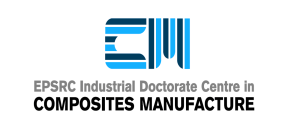Many experienced professionals can easily find research projects in their niche area, but young PDRAs and PhD students may not know how to find them. Research projects can offer opportunities for learning, networking, and career advancement. However, finding research projects that match one’s skills and interests can be challenging. For that reason, we will introduce some strategies and resources for finding research projects in your niche area.
- Identify your research interests and skills.
Identifying your research interests and skills involves introspection into your academic background, personal passions, and career objectives. Questions like, “What are the primary themes or issues that captivate me?” and “What gaps or challenges exist in my field of study?” can guide this reflection. Additionally, consider the skills or methods you enjoy using or learning, and ponder how you wish to contribute to the progress of knowledge or society.
To pinpoint your research interests and skills, explore diverse sources of information and inspiration. This may include perusing academic journals, books, or websites pertinent to your discipline. Seek input from current or past professors, colleagues, or peers who share your interests. Delve into online databases or platforms listing research opportunities or projects and explore professional associations or networks offering guidance for researchers.
To find meaningful projects, look for titles such as research assistant, research officer, or research specialist in relevant fields. Utilize keywords when searching on platforms like LinkedIn and ResearchGate to discover valuable opportunities.
- Explore existing research projects and opportunities.
One of the crucial skills for a researcher is the ability to investigate existing research projects and opportunities. This skill aids in discovering new collaborators, recognizing gaps in the literature, and identifying potential funding sources. Here are some suggestions on how to explore existing research projects and opportunities:
– Utilize online databases and platforms that aggregate research information, such as Google Scholar, ResearchGate, Scopus, and others. Conduct searches based on keywords, topics, authors, institutions, or citations to locate pertinent research papers, projects, and researchers.
– Attend conferences, workshops, seminars, and webinars aligned with your field of interest. Stay informed about the latest developments, trends, and challenges in your research area while networking with fellow researchers who share your interests. Additionally, consider presenting your own work to receive feedback from peers and experts.
– Join professional associations and societies that represent your research domain. Gain access to their publications, newsletters, events, and membership directories. Participate in committees, working groups, or special interest groups to contribute to their activities and initiatives.
– Initiate contact with potential mentors, advisors, or collaborators working on topics or methods that intrigue you. Reach out through email, social media connections, or request a meeting to inquire about their current or past projects, research goals and challenges, and seek advice.
– Explore your institution’s research resources and opportunities. Check your department’s website, bulletin board, newsletter, or email list for information on ongoing or upcoming research projects, events, grants, or awards. Engage with colleagues, supervisors, or administrators to learn more about their research interests and activities.
- Research out to potential collaborators and mentors
One of the key skills for a researcher involves reaching out to potential collaborators and mentors who can provide valuable feedback, guidance, and opportunities. However, many researchers face challenges in initiating and maintaining such professional relationships. Here are some effective tips for conducting research outreach:
– Clearly define your goals and interests before reaching out to anyone. Determine what you aim to achieve through collaboration or mentorship and what you can contribute in return. Whether it’s learning a new method, working on a specific project, or seeking career advice, consider how you can contribute to their research or objectives.
– Conduct thorough research on the individuals you intend to contact, including their background, publications, and current projects. Tailor your message to reflect your genuine interest and enthusiasm, and identify common connections, such as mutual colleagues, institutions, or interests, to establish rapport.
– Craft a concise and polite email for your initial contact. The first impression is crucial, so ensure your email is well-written, professional, and respectful. Briefly introduce yourself, explain the purpose of your contact, articulate what you hope to gain from the interaction, and inquire about their availability and preferred mode of communication. Be specific about your request yet remain flexible and considerate of their time and priorities. If relevant, attach your CV or portfolio, and provide a link to your website or profile.
– Follow up and maintain communication. If you don’t receive a response within a reasonable time frame, consider sending a gentle reminder or follow-up email after a week or two. However, avoid being overly persistent or pushy to prevent annoyance or pressure. If they agree to a conversation, prepare questions or topics for discussion, and be punctual, courteous, and attentive during the conversation. Express gratitude for their time and insights and follow up with a thank-you email afterwards. If they suggest any action items or next steps, promptly follow through and keep them informed of your progress.
For more information, feel free to contact the BCI internal newsletter team at uob-bci-internal-newsletter@bristol.ac.uk


